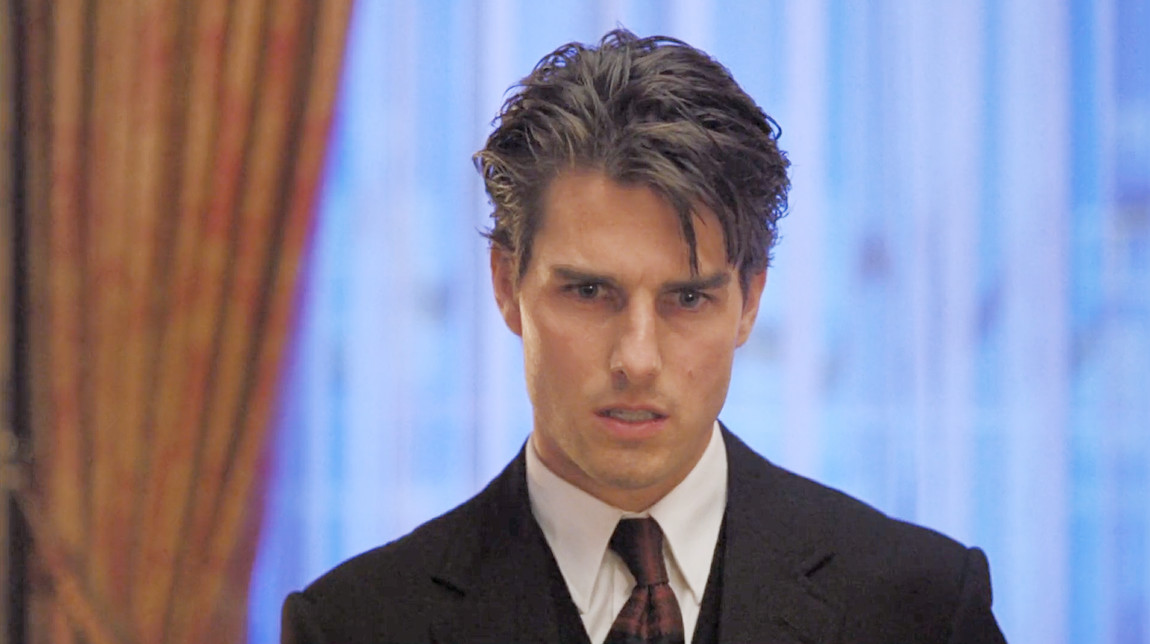
It’s easy to understand why every generation of cinemagoers shells out for thriller movies that will get their hearts racing. This catchall term encompasses a great variety of subgenres, from sweeping crime epics to suspenseful psychodramas, which makes it hard to pin down what exactly falls under its vast umbrella, and even harder to round up the cream of the crop in one curated list.
First and foremost, a good thriller should always prompt a visceral response from its audience and keep them glued to their seats. Some of the most acclaimed directors in cinema history have earned their stripes in this particular genre, pushing all sorts of boundaries and spiking the viewer’s heart rate manyfold with their films. In the interest of fairness, however, we have decided that each could only be represented once in the present list, in an attempt to fully capture the entire breadth of the genre. Not all the entries abide by its traditional norms, but all 20 are guaranteed to send shivers down your spine.
Without further ado, below are the best thriller movies of all time.
20. Le Cercle Rouge (Jean-Pierre Melville, 1970)
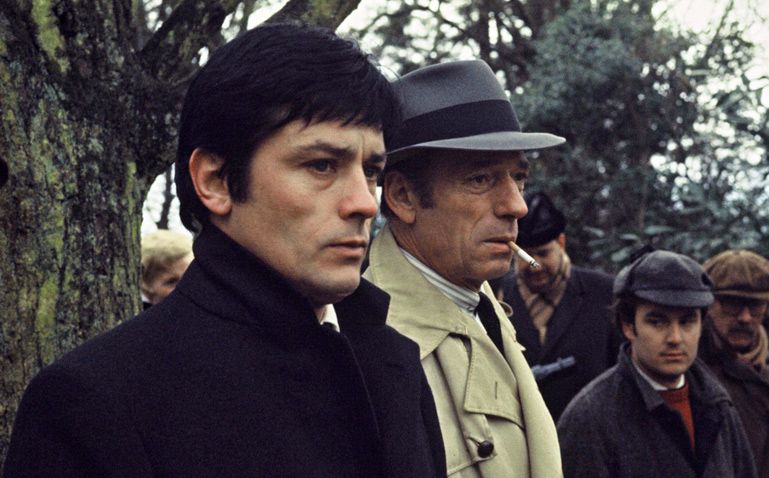
The codes of loyalty, honor, and taciturn masculinity are captured with mighty rapture in this elegant and tightly constructed French thriller, in which the fates of three social outcasts — a notorious escapee, an alcoholic ex-cop, and a recently released ex-con — collide during a daring jewel heist.
Legendary director Jean-Pierre Melville carved a cool niche for himself with explosive cinematic cocktails that blended postwar American noir with French New Wave’s stylistic flourishes. The results here are nothing short of astounding — yielding an ice-cold thriller that takes its sweet time getting going but ratchets up the tension without a hitch. Not to be missed.
19. Memento (Christopher Nolan, 2000)

Before becoming synonymous with puzzle-box narratives, crisscrossing timelines, and the biggest brainteasers in all Hollywood, British director Christopher Nolan earned his stripes with ‘Memento’, a cleverly constructed and inventive neo-noir in which a vengeful Guy Pearce tries to hunt down his wife’s murderer while dealing with short-term memory loss.
Although the mastermind behind ‘Inception’ and ‘The Dark Knight’ often bites off more than he can chew in his work, Nolan hit the mark with his breakthrough 2000 film. And even though his later ventures have certainly grown bigger in scale, budget, and scope, few — if any at all — have aged better than the taut thriller that first launched him onto the world stage.
18. Dog Day Afternoon (Sidney Lumet, 1975)
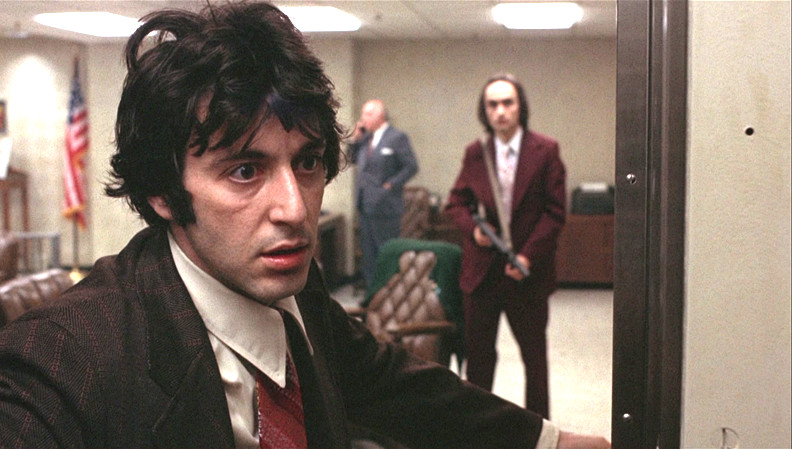
Over roughly 24 hours during a hot summer day, simmering tensions begin to boil over on Prospect Park West between 17th and 18th Street in Brooklyn, where a bungled bank robbery quickly turns sour, resulting in a tense hostage situation and drawn-out stand-off with the police.
A certified provocateur whose credentials include such socially-charged titles as ’12 Angry Men’, ‘Prince of the City’ and ‘Serpico’, renowned director Sidney Lumet uncorked one of the defining movies of the New Hollywood Wave and 1970s-era sweat-soaked guerrilla filmmaking — one that feels at once an oblique mirror of its time and well ahead of it. Packed with iconic scenes, astute social commentary, and Al Pacino’s finest hour, ‘Dog Day Afternoon’ stands tall as a milestone in the genre that only grows more resonant with each passing year.
17. M (Fritz Lang, 1931)
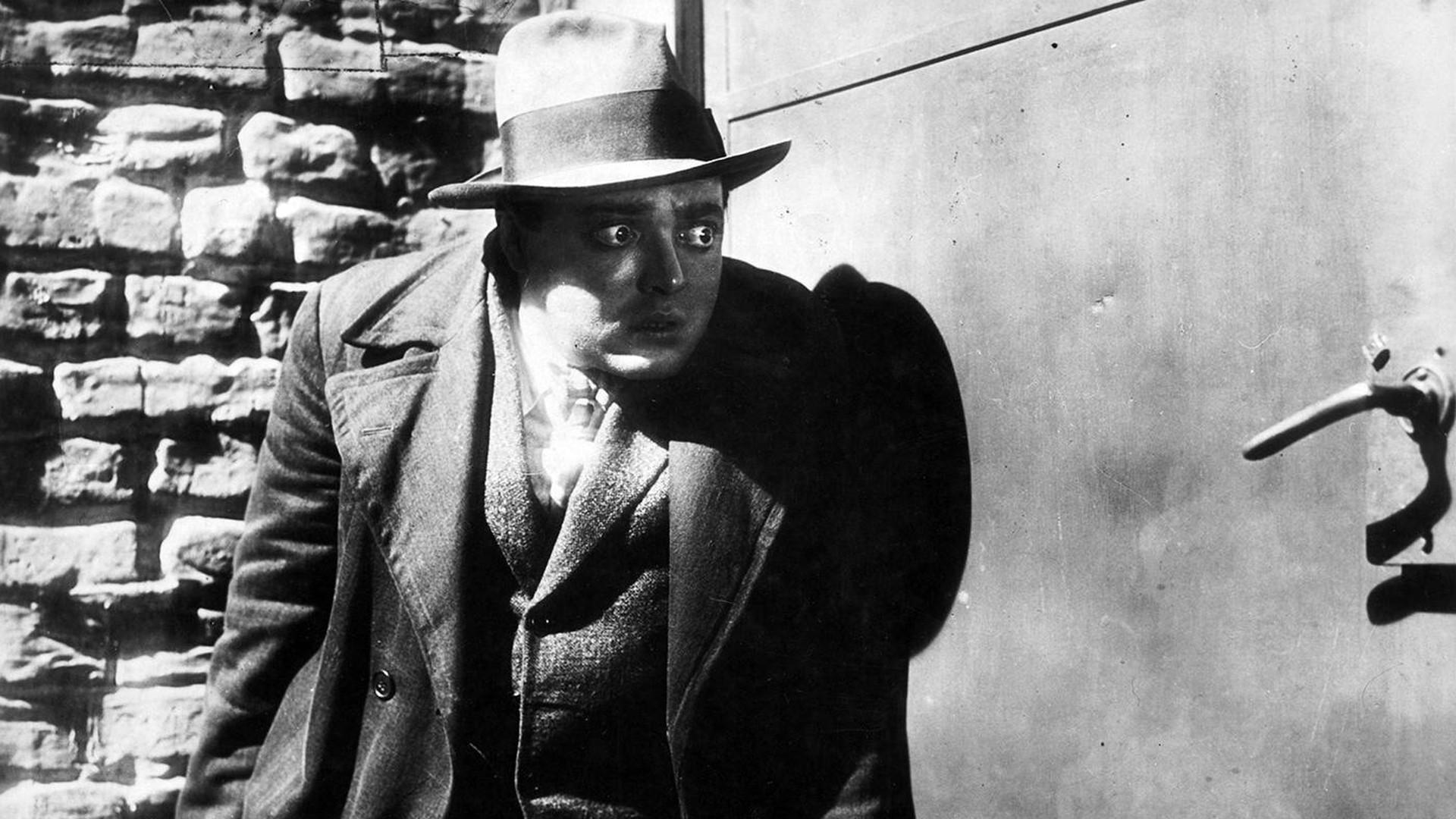
Often hailed as the film that kickstarted the psychothriller and crime procedural as we know it, Fritz Lang’s groundbreaking ‘M’ is all but impossible to discuss without acknowledging the unrivaled influence it has wielded on almost every modern nail-biter that followed.
The predator becomes the prey in this watershed monochromatic stunner, which plunges viewers into a citywide manhunt across postwar Berlin, where an insidious child murderer (Peter Lorre) plants the seeds of mistrust and paranoia among its inhabitants while trying to escape justice. Lang’s seminal opus is both a chilling portrait of the banality of evil and a sad-eyed lament on the dangers of herd mentality and mob rule that laces its critical jabs with genuine menace. Don’t be fooled by its almost centenarian status — by the time the screen fades to black, you’ll have a hard time shaking the whole experience out of your system.
16. The Third Man (Carol Reed, 1949)
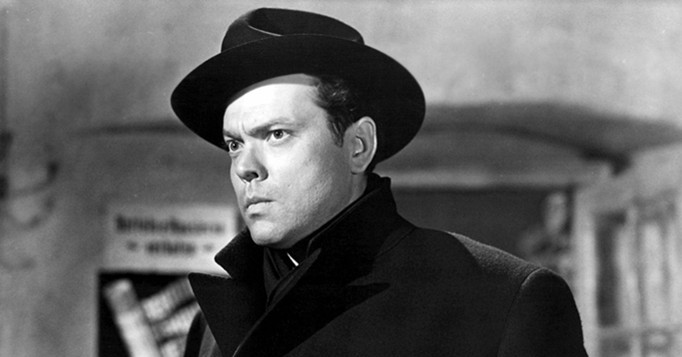
Much of the discourse on this slice of fatalistic European noir hones in on its many stylistic flourishes, most notably its stark black-and-white cinematography of post-World War II Vienna. And although cameraman Robert Krasker’s discerning eye for detail warrants the highest of praises, the true driving force behind ‘The Third Man’ lies in the tangled relationship between two men: a pulp novelist (Joseph Cotten) and his long-lost childhood friend (Orson Welles), who is presumed dead.
In the tradition of Curtiz’s ‘Casablanca’, the evil specters of the war continue to haunt and ripple through every shadowy street and smoked-choked alleyway of occupied Vienna, providing British director Carol Reed with a war-torn urban milieu perfectly suited for his ghoulish story. Almost 75 years on, much of the film’s imagery — including one of the greatest entrances in cinema history — are still impossible to shake.
15. No Country for Old Men (Coen Brothers, 2007)
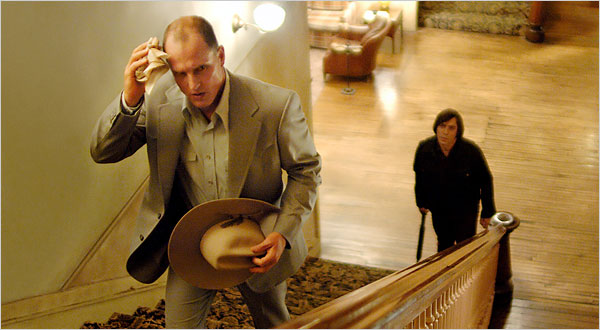
By virtue of being the most versatile storytellers in recent memory, Joel and Ethan Coen might not exactly be the first two names that come to mind when discussing the annals of the thriller genre. Sure, even their most light-hearted entries in their sundry catalog had come with a healthy dose of existential dread, but never had it been manifested more transparently than in this Cormac McCarthy adaptation.
Anton Chigurn (Javier Bardem), the sociopathic force of nature at the crux of the 2007 Best Picture winner, left a lasting impression among moviegoers and instantly bled into the zeitgeist to become the Villain with capital-V for an entire generation. Though it takes its time implanting itself in your mind, many of the sickening underpinnings in this neo-western will linger with you for long after the credits roll.
14. Touch of Evil (Orson Welles, 1958)
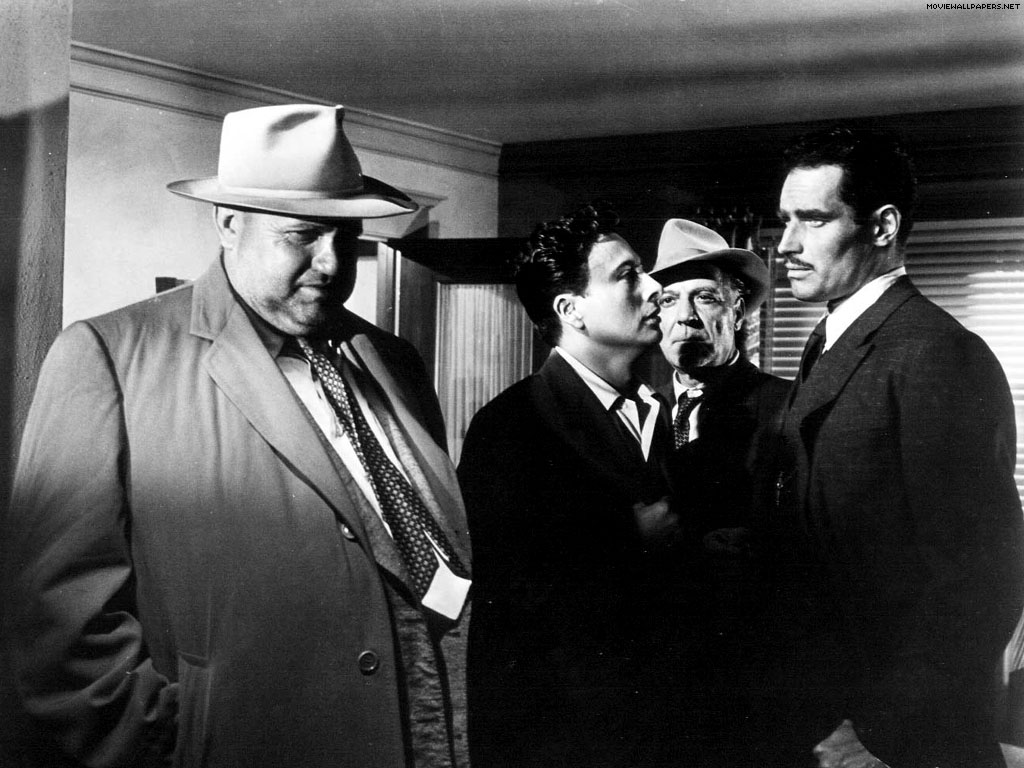
Moral ambiguity fogs over yet another cynical thriller set in the U.S./Mexico border, a heralded masterpiece that has enjoyed a bit of a renaissance lately, in no small part thanks to a brand-new director’s re-edit that improved in spades upon Universal’s botched theatrical cut that heavily compromised its creator’s vision.
The idea of Orson Welles playing a sleazy, cigar-smoking, corrupt sheriff playing opposite Charlton Heston as a righteous narcotics officer is a fundamentally delightful prospect, one made all the more satisfying by having the former’s skill and unique vision behind the camera. ‘Touch of Evil’ makes good on that lofty promise, delivering a seedy, pitch-black film noir full of virtuosic sequences that pulls no punches and leaves the viewer with a lot to chew on.
13. Eyes Wide Shut (Stanley Kubrick, 1999)
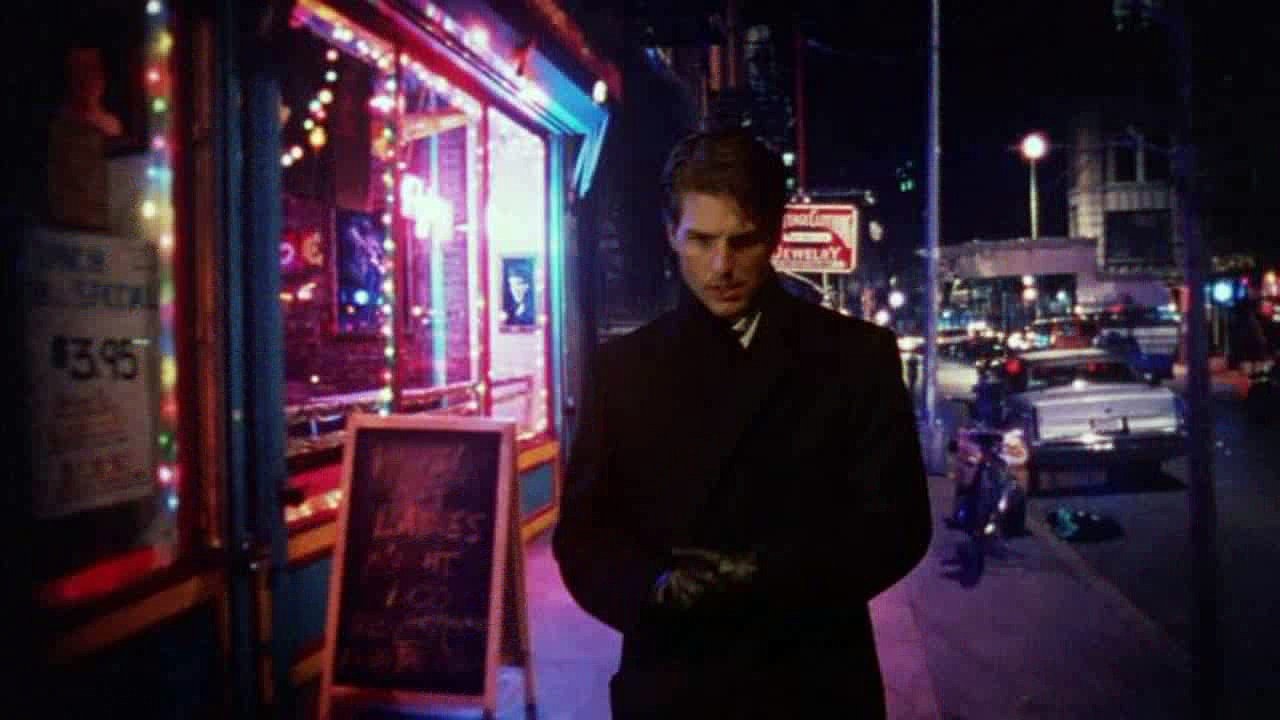
The off-screen drama and enigmatic circumstances surrounding Stanley Kubrick’s psychosexual swan song have taken a life of their own in the past two decades — shrouding the film even further in mystery and triggering tabloid and online chatter up to a nauseating degree. Yet, whether or not you put a lot of stock in alleged cover-ups, marital break-ups, hidden symbolism or Illuminati conspiracy theories, there’s no denying Eyes Wide Shut’s enduring magnetism.
Anchored by the once marquee Hollywood power couple in Tom Cruise and Nicole Kidman, the 1999 film remains a titillating peer into the abyss that puts warped masculinity, sexual promiscuity, and bourgeois conformity all under the microscope. Reality and fantasy muddle together, revealing pent-up desires, repressed guilts, and sexual obsessions, as the reputable Dr. Bill Harford gets more than what he bargains for during one of his nocturnal escapades. Unpredictable, delectably provocative, and endlessly elusive, ‘Eyes Wide Shut’ continues to inspire rarefied passions today.
12. Z (Costa-Gavras, 1969)
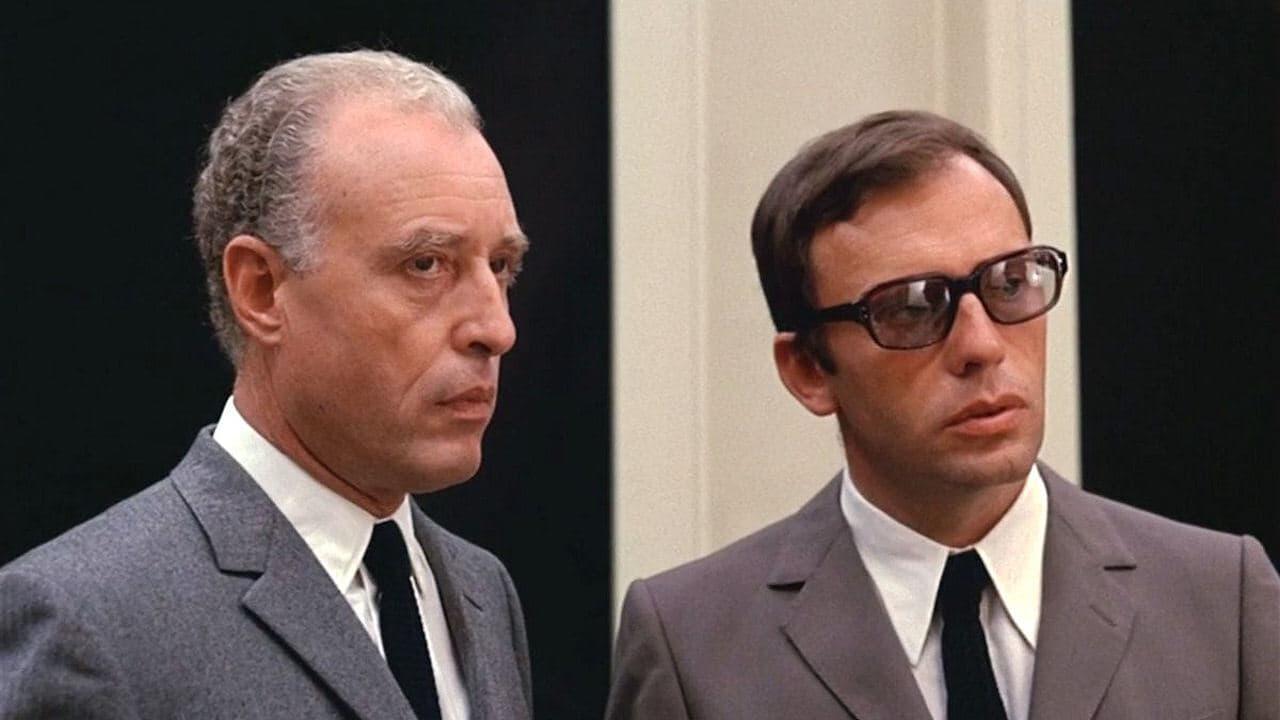
Government corruption, bureaucratic inertia, and totalitarian oppression rear their ugly head in Costa-Gavras’ bracingly urgent and ferocious political thriller. Based on the 1963 Lambrakis affair, ‘Z’ centers around the true story where the supposedly accidental death of a leftist Greek activist amid a peace demonstration triggers a nation-wide investigation incriminating the powers-that-be, prompting a righteous Magistrate to unravel the pieces of the conspiracy.
At the intersection between gripping conspiracy thriller and no-holds-barred political statement, Greek expatriate director Costa Gavras makes his anti-establishment tenor clear; bluntly illustrating how public servants wield their power in order to evade justice and callously push their personal agendas. All in all, you will rarely encounter a bigger gut-punch of an ending than the one bookending ‘Z’.
11. The Long Goodbye (Robert Altman, 1973)
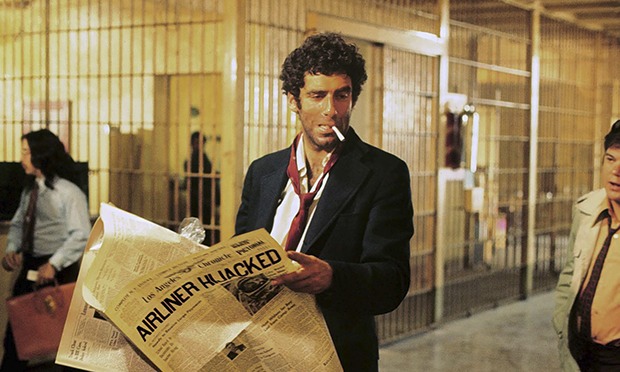
Elliot Gould gives an iconic performance as Philip Marlowe, a wisecracking and effortlessly cool private eye who gets roped into a seemingly labyrinthine mystery full of twists and dead-ends, and where there’s always more than meets the eye.
Not so much a direct translation of Raymond Carver’s Bogart-era source material as it is a tongue-in-cheek spoof, Robert Altman’s ‘The Long Goodbye’ essentially paved the way for a plethora of languidly-paced, brisk-toned dramas that survey Los Angeles’ seedy underworld through the eyes of an unconventional white knight — think ‘The Big Lebowski’, ’Inherent Vice’ or ‘Under the Silver Lake’. Much like the aforementioned titles, strictly following the narrative breadcrumbs or taking this Pynchonesque conspiracy at face value is a sure way to miss all the fun in between.